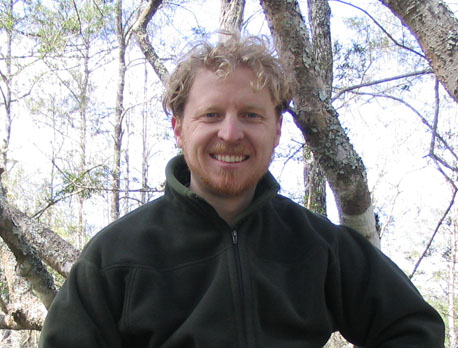UROP Research Mentor Project Submission Portal: Submission #546
Submission information
Submission Number: 546
Submission ID: 9001
Submission UUID: 01c23c82-0a19-4695-bcd9-a5019d56aa69
Submission URI: /urop-research-mentor-project-submission-portal
Submission Update: /urop-research-mentor-project-submission-portal?token=5CI3XdSMKupFI2_Tq6Sn4boudGreJjVPc16SUiNKsuU
Created: Mon, 08/21/2023 - 09:24 PM
Completed: Mon, 08/21/2023 - 09:31 PM
Changed: Wed, 10/04/2023 - 03:41 PM
Remote IP address: 71.220.191.72
Submitted by: Anonymous
Language: English
Is draft: No
Webform: UROP Project Proposal Portal
Submitted to: UROP Research Mentor Project Submission Portal
Research Mentor Information
Additional Research Mentor(s)
{Empty}
{Empty}
{Empty}
{Empty}
{Empty}
{Empty}
{Empty}
{Empty}
Overall Project Details
Understanding brain neural circuit divergence during the evolution of new species
speciation, behavioral evolution, neurobiology, computational biology
No
2
Open to all majors
On FSU Main Campus
{Empty}
In-person
8
Flexible schedule (Combination of business and outside of business. TBD between student and research mentor.)
The student will join a collaboration to understand how the architecture of neural circuits constrains or facilitates the evolution of behavior. We have been studying for ~20 years how reproductive behaviors (male acoustic signals and female preferences for these signals) diverge and evolve as new species form. We are currently using an empirically based computational model of four interconnecting neurons to understand how changes in the activities of neurotransmitter receptors affect the response of the neurons in the circuit and behavior of females choosing among males producing different mating calls. The student will use the existing model to develop an interactive simulator that will allow the user to see graphically how phenotypes at different levels change in concert. More specifically, the user of the simulator will be able to select a frog call to play to the input neuron, select properties of the receptors, then see how the neurons in the circuit fire in real time. The resulting effect on the female preference functions will also be displayed. Finally, we will conduct simulations of frog populations evolving on a fitness landscape, with the goal to understand how the architecture of the neural circuits may direct influence the evolution of reproductive isolation as the populations diverge into multiple species.
Utilizing existing software. Developing and testing a graphical user interface. Managing data files. Potential for programming simulations of evolution.
Required: enthusiasm for scientific research; motivation to work hard and persevere through challenges; positive attitude; determination to learn; ability to work individually and as part of a team; dependability.
Recommended: Prior experience in computer programming (e.g., Matlab and/or JavaScript and/or web design) would be beneficial but is not required.
Recommended: Prior experience in computer programming (e.g., Matlab and/or JavaScript and/or web design) would be beneficial but is not required.
The selected UROP student will join a team of 6 other undergraduates, several graduate students and two PIs and who are working on different aspects the chorus frog system, including genetics, behavior, fieldwork, neuroscience, and modeling. Our integrative approach provides diverse training in these areas for undergraduate students in order to better prepare them for an academic career. The PIs meet one-on-one with undergraduate researchers weekly to help them design and carry out high level research with the goal of publication.
{Empty}
{Empty}
UROP Program Elements
Yes
Yes
Yes
Yes
{Empty}
2023
https://cre.fsu.edu/urop-research-mentor-project-submission-portal?element_parents=elements/research_mentor_information/headshot_optional_&ajax_form=1&_wrapper_format=drupal_ajax&token=5CI3XdSMKupFI2_Tq6Sn4boudGreJjVPc16SUiNKsuU

